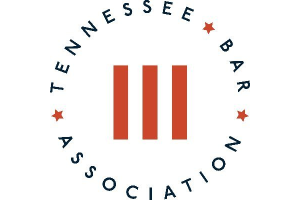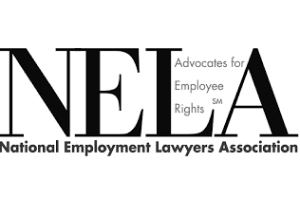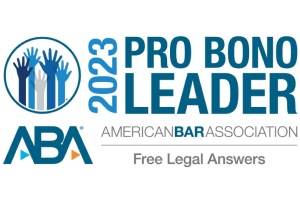for Workers
Executive Severance Agreements
Executives hold the highest degree of responsibility within their organizations. They work in high-risk, high-stress roles and earn robust compensation packages as a result. So when it comes to executive severance agreements, the stakes are high.
Executive severance agreements are a complicated area of law that touch on employee benefits, contracts, and securities and corporate regulation. Hiring an experienced executive severance lawyer at the outset is crucial to protecting your financial and reputational interests.
To speak with one of our executive-level employment lawyers in Nashville, please call us at the number above or complete our online contact form.
Why Choose Rickard Masker, PLC?
- Recognized. Highly rated and peer reviewed by Super Lawyers® and Best Lawyers® for outstanding work in employment litigation. We have worked for some of the best law firms in the country and deliver big firm talent with small firm service.
- Results. We have recovered millions in damages for our clients.
- Highly Selective, Low Volume. With our firm, you are one of a select few clients who receives honest, transparent, and highly responsive representation. Do not become another file number at a high-volume firm. If it takes more than a few days to speak with a lawyer, you know it’s a high-volume law firm.
Executive Equity Interests
Executives are often incentivized with significant compensation packages that include equity grants that vest over time, whether ISOs, non-qualified options, restricted stock, or even phantom stock. Therefore, a key severance consideration is what happens to your equity compensation, especially if the company is nearing an IPO or other change in control event.
It is crucial that any severance agreement address an executive’s equity interests in the company. Sometimes this means a triggering provision that accelerates vesting or a claw-back clause if a change in control occurs within a certain period of time after termination.
At-Will or Term Employment
Often, the best time to obtain favorable severance terms is during the recruitment process when you may have the greatest leverage in negotiations. This may be in the form of a term employment contract that guarantees compensation and equity interests upon a triggering event such as termination without “cause.” In this circumstance, carefully reviewing and negotiating a narrow definition of “cause” is essential to protecting your employment interests. Similarly, you should have the right to resign for “good reason,” such as a material diminution in compensation or responsibilities, or change in control of the company.
Although a board of directors can fire an at-will executive at any time for any lawful reason, favorable severance terms can often be negotiated. A careful review of all employment-related documentation is always crucial to understanding your legal rights concerning compensation and equity.
Protecting Your Reputation
Executives are recruited and hired based on their reputation in the industry for leadership ability and inspiring positive change within organizations. If the employment relationship does not work out as intended, you may be concerned about rumors circulating about what happened and who is to blame. Fortunately, such issues can be addressed during the severance negotiation process, e.g., a mutual non-disparagement clause with liquidated damages.
Employer’s Interests
Severance agreements usually contain a release of claims that prevents the executive from having any viable legal claims against the company related to the employment relationship. Some executive severance agreements also contain restrictive covenants that prohibit the executive from working with a competitor and soliciting customers or employees of the company for a specified period of time within a certain geographic region. The enforceability of such restrictions depends on their geographic, temporal, and subject matter scope, which is governed by state law. Often, the temporal scope of restrictive covenants is tied to the severance period, i.e., one year of severance pay equals one year of restrictions.
If you need assistance in negotiating an executive severance package, contact one of our executive severance lawyers in Nashville at the number above or online.
Regulatory Factors Impacting Executive Severance
Several federal laws and regulations may impact how severance compensation is structured, including:
- IRC Section 409A regulates taxation of non-qualified deferred compensation plans, and imposes penalties for non-compliance.
- IRC Section 280G & 4999 impose a 20 percent excise tax on “golden parachute” payments.
- The Dodd-Frank Act permits shareholders the right to vote on executive-level pay packages.
Common Severance Terms
Any executive severance package, whether addressed in an employment agreement at the outset or a separation agreement upon termination, at a minimum should address the following:
- Lump sum payment or salary continuation for a specified period of time
- Health, disability, pension and other benefits (e.g., company-paid COBRA premiums)
- Payment of bonuses, commissions, and any deferred compensation
- Vesting or payout of equity and stock (potentially with claw-back provision)
- Reimbursement for outstanding expenses
- Outplacement services
- Positive (or at least neutral) job reference
- Non-Disparagement
- Restrictive Covenants
- Indemnification/D&O insurance coverage
Note that there may be additional beneficial terms based on your unique circumstances.
First Steps To Take
The first step in protecting your legal and career interests is to promptly contact a lawyer who has experience handling severance matters for executives. Executive-level severance agreements are legally complicated, and the stakes are high. Failing to protect yourself can be financially devastating, and your reputation may be impacted as well and as future employment opportunities. An attorney can assess your severance situation and determine the best path to protecting your legal and career interests.
If possible, gather all available documentation—e.g., employment contract, offer letter, stock option agreement, etc.—that may be important to your severance negotiations prior to your first attorney call.
To speak with one of our skilled Nashville-based severance lawyers, please call the number above or complete our online intake form.














